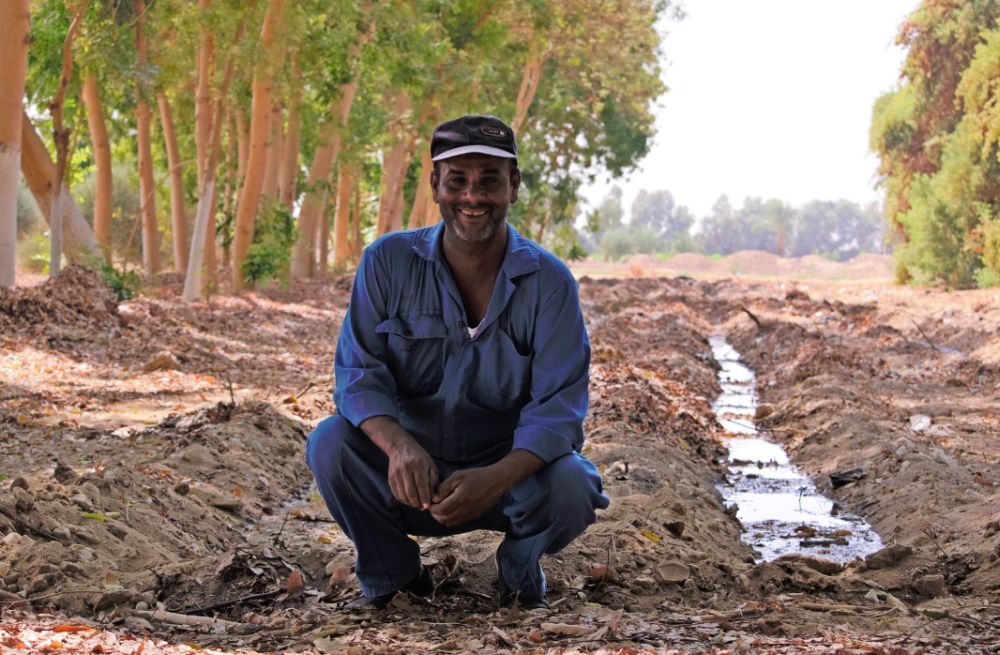A new IWMI book will bring new insights and recommendations for more and safer water reuse in MENA

Recycling water could supplement, or substitute water needs in sectors suffering from water shortage, reduce groundwater pumping and alleviate the use of freshwater in the agricultural sector, researchers of the "Water reuse in Middle East and North Africa: A sourcebook” have reported.
The "Water reuse in Middle East and North Africa: A sourcebook”, produced by the International Water Management Institute (IWMI) as part of the four-year ReWater MENA Project, reveals new and relevant data on the water reuse sector in the MENA region. The book, expected to be released in autumn 2022 in the lead up to the COP27 to be held in Egypt, is composed of three main sections which tackle, respectively, the state of water reuse in the region, a collection of success stories, and a list of guidelines and recommendations to further implement in the sector.
Despite sociopolitical, economic and environmental crisis, recycled water is presented as an opportunity
Acute and escalating water shortages pose a risk to MENA’s present and future development. Population growth, rapid urbanization, agricultural expansion, climate change and sociopolitical and economic cleavages are aggravating the situation. “Despite its potential benefits, water reuse is still an untapped opportunity in MENA due to historic management obstacles'' says Javier Mateo-Sagasta, Senior Researcher and Coordinator of Water Quality at IWMI, Project Leader of the ReWater MENA project and lead editor of the book.
The first section of the book analyzes the state of water reuse in the region and highlights the challenges that currently limit opportunities to upscale and accelerate the expansion of water reuse across the region. Mateo-Sagasta states that “it is important to look at recycled water as an opportunity, since the sociopolitical and environmental driver of the water crisis won't fade. On the other hand, if no action is taken, the water crises would deteriorate further.”
National success stories: inspirational solutions to replicate across the region
The study of promising national success stories is summarized in the second section of the sourcebook, which characterizes relevant case studies of water reuse for agriculture in the region. Part of these success stories on water reuse were presented in the Second Regional Science-Policy Dialogue on “Innovative Solutions and Policy Actions for Water Reuse in the MENA Region” that took place in Cairo in July 2022. The two-day event, which brought together high level policy and science representatives from the water, health, agriculture, and environmental sectors, reflected on how to replicate success stories and the diversity of challenges that the water reuse sector is facing.
The scientific evidence reported in the sourcebook is unequivocal: wastewater treatment and reuse are a key way to address the water security risk in the MENA region. Among other things, wastewater treatment and reuse provide a reliable water supply when there is a regional shortage; it improves local economic growth; it reduces freshwater withdrawals from aquifers and rivers; and it reduces fertilizer usage in agriculture. The recovery of water, energy, nutrients and other materials embedded in wastewater is gaining more attention in resource-scarce countries as an approach to meet increasing demands.
A water reuse toolkit: thematic guidelines for different audiences
The sourcebook dedicates an entire section to a list of guidelines and recommendations to further implement in the water reuse sector, based on lessons learned from the cases in section two, in order to upscale and accelerate the expansion of water reuse in the region, and to make water reuse more inclusive.
The section shows policy makers, planners, and project managers how to adopt appropriate tariffs, economic incentives and financial models to increase cost recovery and the sustainability of reuse projects. It shows project designers and implementers how to improve participation and communication in water reuse initiatives and how to empower women in reuse projects and ensure that reuse benefits also women. The section also provides advice on how to formulate harmonic and effective policies in multidisciplinary and complex field such as water reuse.
Inclusive participatory approach key to increase public acceptance of water reuse
The ReWater MENA project has used a participatory strategy to ensure the success of the initiative, now collected in the pages of the "Water reuse in Middle East and North Africa: A sourcebook”. “This is one of the most important learnings of the project: investing efforts in stakeholder analysis and engagement is crucial to understand hydrosocial dynamics, conduct grounded research and develop policies and projects adapted to both environmental and social contexts” says Marie-Heléne Nassif, Researcher and Project Coordinator of ReWater MENA.
For more information, please contact:
Javier Mateo-Sagasta, Senior Researcher & Coordinator of Water Quality at IWMI and Project Leader of the ReWater MENA project: j.mateo-sagasta@cgiar.org
